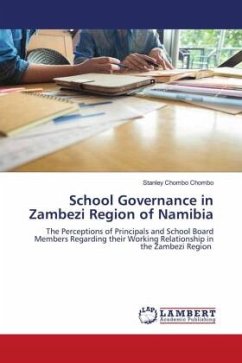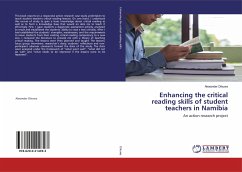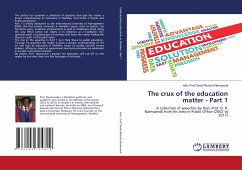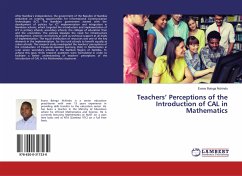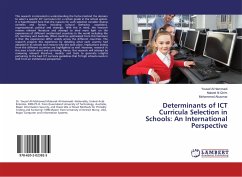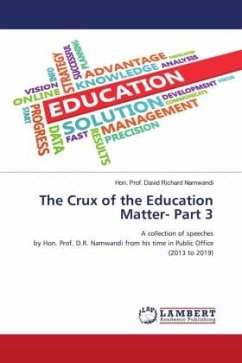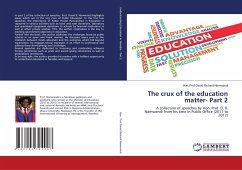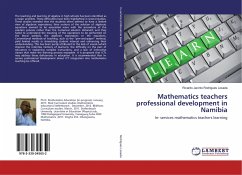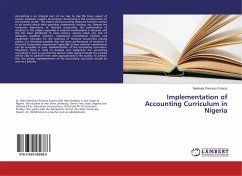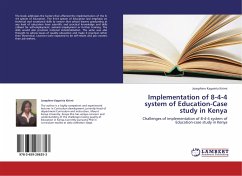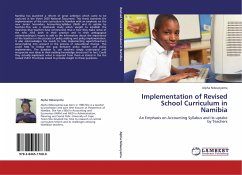
Implementation of Revised School Curriculum in Namibia
An Emphasis on Accounting Syllabus and its uptake by Teachers
Versandkostenfrei!
Versandfertig in 6-10 Tagen
39,99 €
inkl. MwSt.

PAYBACK Punkte
20 °P sammeln!
Namibia has launched a reform of great ambition which came to be captured in the Vision 2030 National Document. This thesis examines the implemenation of the new curriculum in Namibia with an emphasis on the new Junior Secondary Accounting Syllabus (JSAS) and its uptake by teachers.This was a small-scale study which sought to establish the meanings that teachers have constructed, that is how they make sense of the new JSAS both in their practice and in their pedagogical understandings.It hopes to add to the information about the importance of the teachers in the process of policy making and po...
Namibia has launched a reform of great ambition which came to be captured in the Vision 2030 National Document. This thesis examines the implemenation of the new curriculum in Namibia with an emphasis on the new Junior Secondary Accounting Syllabus (JSAS) and its uptake by teachers.This was a small-scale study which sought to establish the meanings that teachers have constructed, that is how they make sense of the new JSAS both in their practice and in their pedagogical understandings.It hopes to add to the information about the importance of the teachers in the process of policy making and policy implementation. It also acknowledges the needs to take implementing agents'(teachers) sense-making into account in the process of educational change. This could help to bridge the gap between policy makers and policy implementers. The question is, can teachers simply understand and incoporate new ideas in their existing knowledge structures? In fact, Could they actually implement what is required from them as stated in the the revised JSAS? This thesis aimed to provide insight to these questions.



